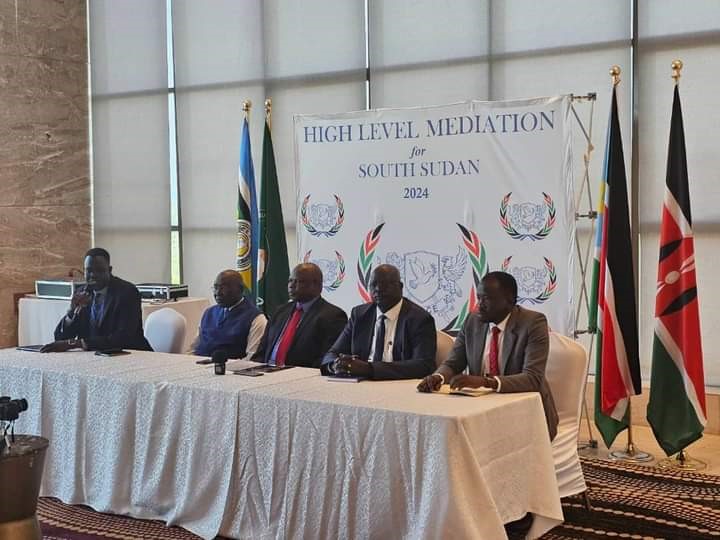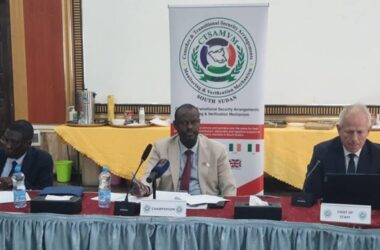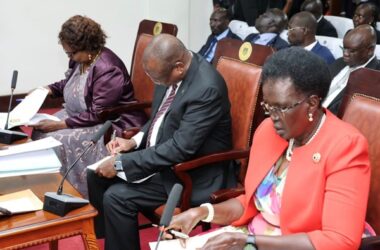By No. 1 Citizen
South Sudanese Opposition Parties to the Nairobi peace talks have declared that they will not sign any agreement unless the recently passed National Security Bill is repealed.
In a statement released yesterday, the opposition parties stated that the ongoing crises in South Sudan are rooted in poor governance and human rights abuses, and the National Security Service (NSS) has strayed furthest from its constitutional mandate.
They accused the NSS of replicating the authoritarian tactics of the former Khartoum regime in Juba, instituting a “reign of terror and intimidation” that has quashed the democratic gains won by the people of South Sudan through the 2011 referendum and declaration of independence.
The statement described it as “utterly shocking” that the parliament, which claims to represent the people, was intimidated into empowering such a notorious agency to terrorize our people and bury their hopes for freedom and rule of law.”
“The Opposition will not sign any agreement with the R-TGoNU until the National Security Service Act is repealed as agreed in the Tumaini Initiative,” the statement partly read.
“The National Security Service must be reconstituted into a civilian National Intelligence Service with the mandate to gather intelligence without powers of arrest, detention, and interference in the political processes,” they demanded.
They stated the rush by the Revitalized Transitional Government of National Unity (R-TGoNU) to pass this Act is an attempt to undermine the Nairobi peace process, which they consider an “act of bad faith.”
This follows similar calls from the South Sudan People’s Liberation Movement in Opposition (SPLM-IO) and human rights groups calling on President Salva Kiir not to sign the controversial Bill.
On Sunday, The SPLM-IO deputy Chairperson, Nathaniel Oyet, argued that the passing of the NSS Bill violated Article 1.14.9 of the Revitalized Peace Agreement (R-ARCSS).
He demanded a revote, either through a secret ballot or by seeking consensus among the agreement’s signatories, as stipulated in the R-ARCSS.
Transitional National Legislative Assembly (TNLA) yesterday passed the National Security Act 2014 (amendment) Bill 2024 maintaining articles that grant arrest without warrant.
This is amid heated debate and contrasting views among lawmakers.
The controversial bill was tabled by the Chairperson of the Committee on National Security and Public Order, Kom Kom Geng, for third reading.
The most contentious sections were 54 and 55, which granted the National Security Service (NSS) unfettered and autonomous authority to detain suspects without a warrant of arrest.
On July 3rd, 2024, the Transitional National Legislative Assembly (TNLA) passed the National Security Act 2014 (amendment) Bill 2024 maintaining articles that grant arrest without warrant.
The most contentious sections were 54 and 55, which granted the National Security Service (NSS) unfettered and autonomous authority to detain suspects without a warrant of arrest.
The Bill had been stalled in Parliament for two years due to disagreements over these very sections.
In February 2021, the Justice and Constitutional Affairs Minister, who also serves as Attorney General, advised the removal of the controversial article.
This was followed by a consensus between the two principals (President Salva Kiir and Dr. Riek Machar) signatories of the R-ARCSS.
The passing of the Bill has caused outrage among South Sudanese and the international community.



